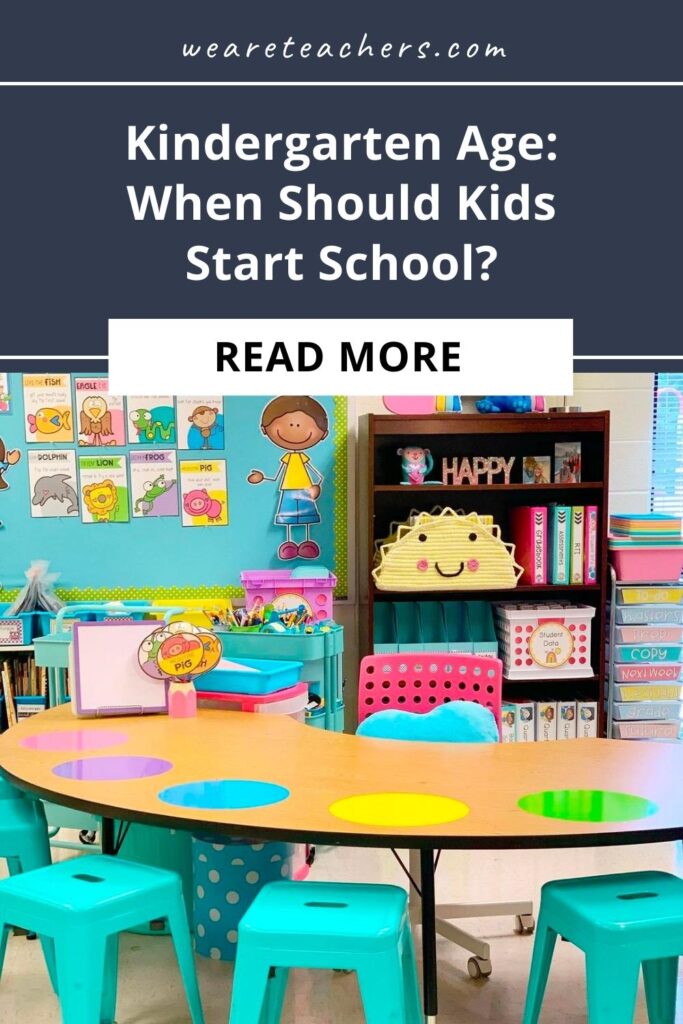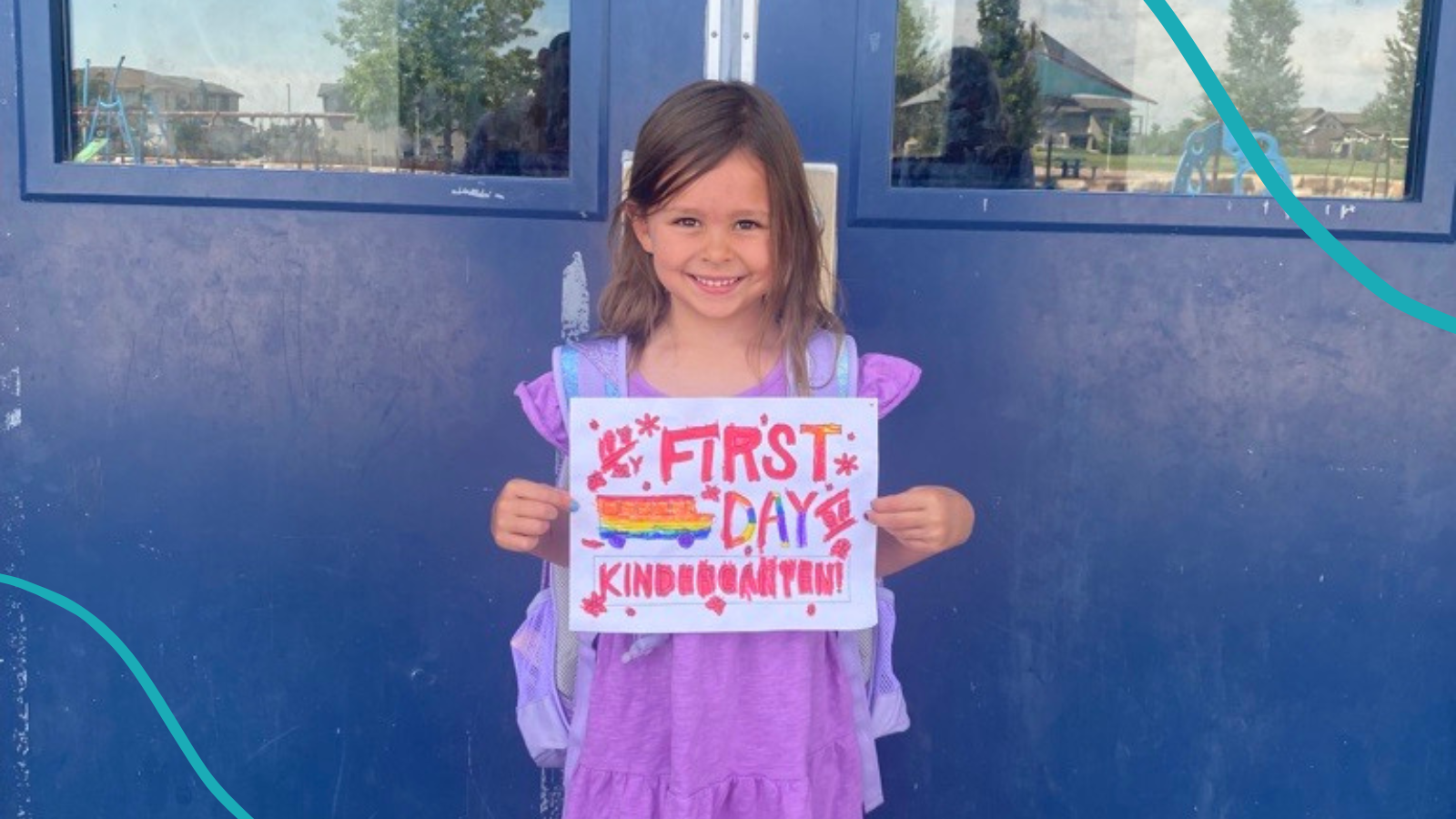Kindergarten is school at its finest—play time, centers, picture books, and quiet time. For kids who didn’t go to preschool, kindergarten may be their first time in school. So at what age do kids start kindergarten? And what should you know about this important transition?
At what age do kids start kindergarten?
That’s a tricky question. There is a mandatory age when children are required to attend school, and that varies by country. (Get a full list of mandatory school ages here.) For a snapshot:
- Hungary: 3
- Luxembourg: 4
- Northern Ireland: 4
- Australia: 5
- Israel: 6
- China: 6
- Russia: 6
- South Africa: 7
- Sweden: 7
- United States: 5-8 (varies by state and district)
In the United States, only 18 states require children to attend kindergarten, according to the Institute of Education Sciences. What age students are when they enter kindergarten depends on the state (see the full state list here). Most states require that students be 5 years old by a certain date in the school year, usually August 31 or September 1, though some are earlier (Hawaii, July 31) and some are later (Maine, October 15). A few states (Massachusetts, New Jersey, New York, Ohio, Pennsylvania) leave the age up to each individual district. For example, in NYC Public Schools, students enter kindergarten in the fall of the calendar year they turn 5 years old, which means they may still be 4 when school starts in September as long as they turn 5 by December 31.
So, in the United States, kids typically go to kindergarten at age 5, but each classroom will be full of kids who have just turned 5, and some who are about to turn 5 or have just turned 6.
What do kids learn in kindergarten?
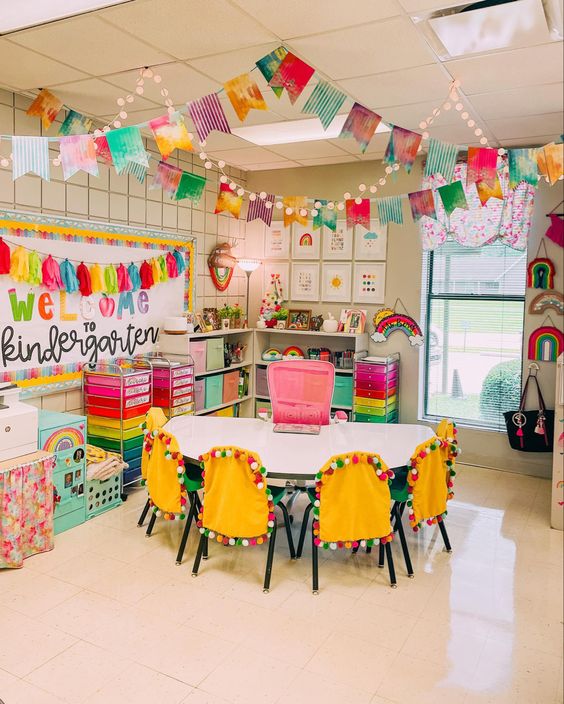
What don’t they learn?! No matter the age children start kindergarten, they’ll gain a foundation for pretty much everything else they’ll do in school. That said, kindergarten teachers often have a curriculum that they follow, depending on the district. The curriculum will determine the order that things are taught and some of the experiences that kids will have. But in general, kindergartners are learning how to read, how to write, and how to ask and answer questions. Play and social skills are also important this year.
Reading, Writing, and Arithmetic
The bulk of a kindergartner’s day is academics. They’re learning to read and write and work with basic numbers. Some of what kids learn will be directed by the curriculum, but a lot of it is core skills that students will use in the years to come—phonics, reading words, working with numbers and amounts.
Here are a few things to look for in a kindergarten classroom related to academics:
A Sound Wall
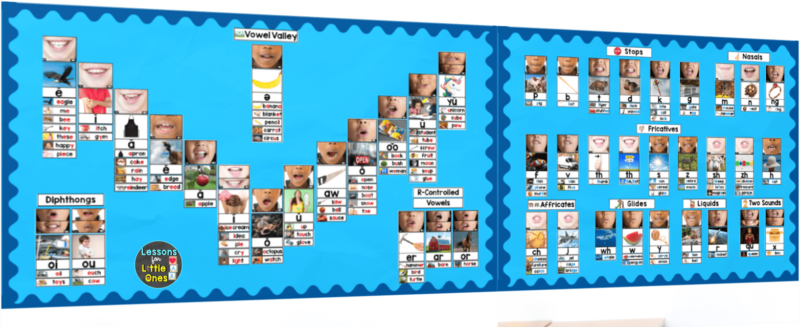
As kids learn to read and say sounds, a sound wall shows them what their mouth should look like and where they should make the sound. This helps students know they’re making and practicing the sounds correctly.
Read more: How to Set up a Sound Wall
A Robust Reading Corner
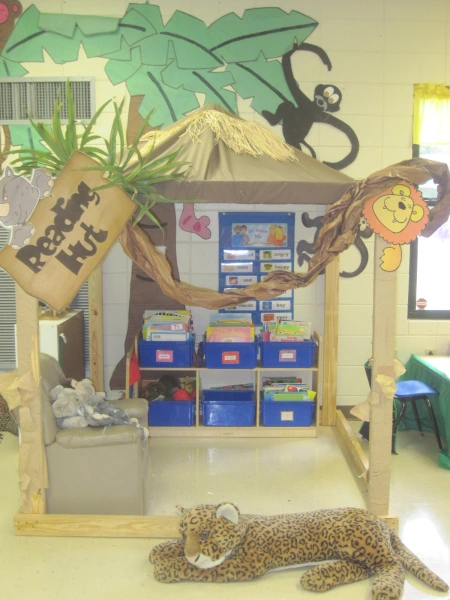
The theme doesn’t matter as much as making sure that students have a cozy, welcoming place to read with lots of books to choose from. In kindergarten, children start seeing themselves as readers and they need a place to practice.
Small-Group Space
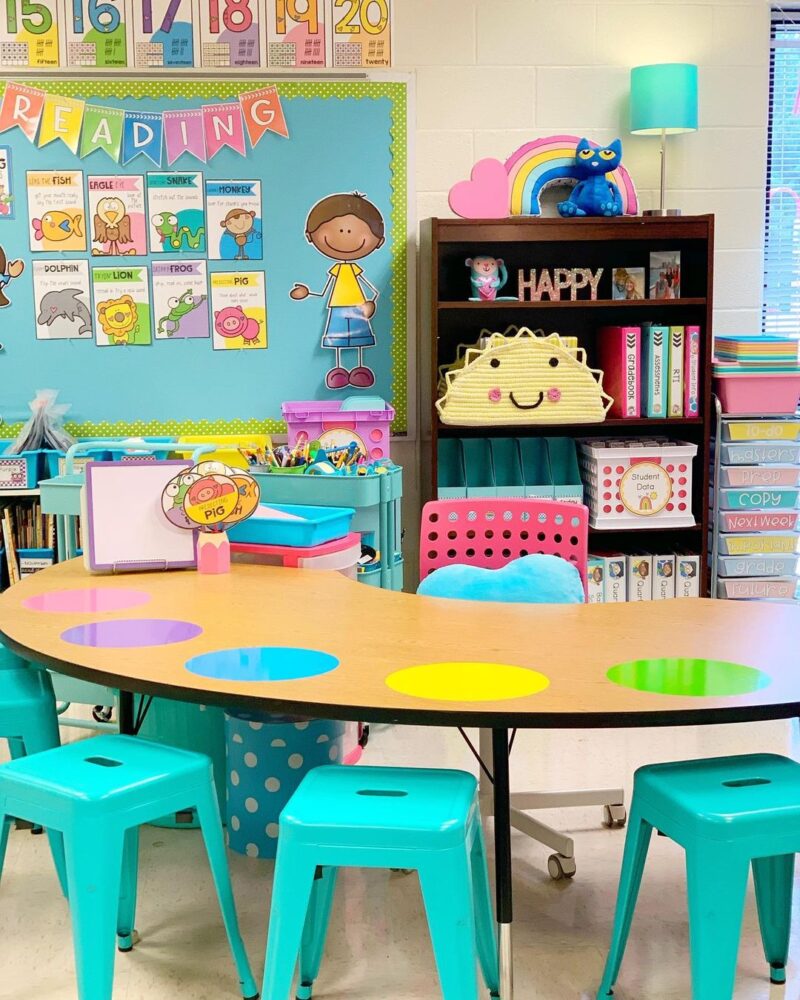
Teachers will work with students in small groups as they move through reading skills, so having a comfortable place to work and learn is important in kindergarten.
Science and Inquiry
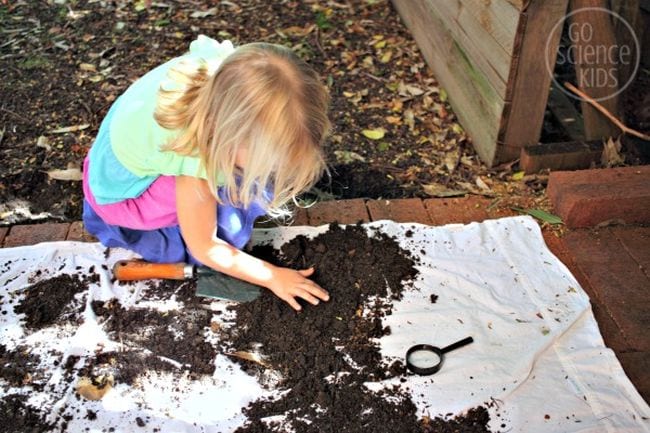
Kids will spend time investigating and answering questions like “What is in dirt?” The process of asking and researching to answer a question gets at the scientific process, as well as science content. Kindergartners learn about motion and force, energy, the earth, and engineering, to name a few topics.
Read the Next Generation Science Standards for Kindergarten.
Play!
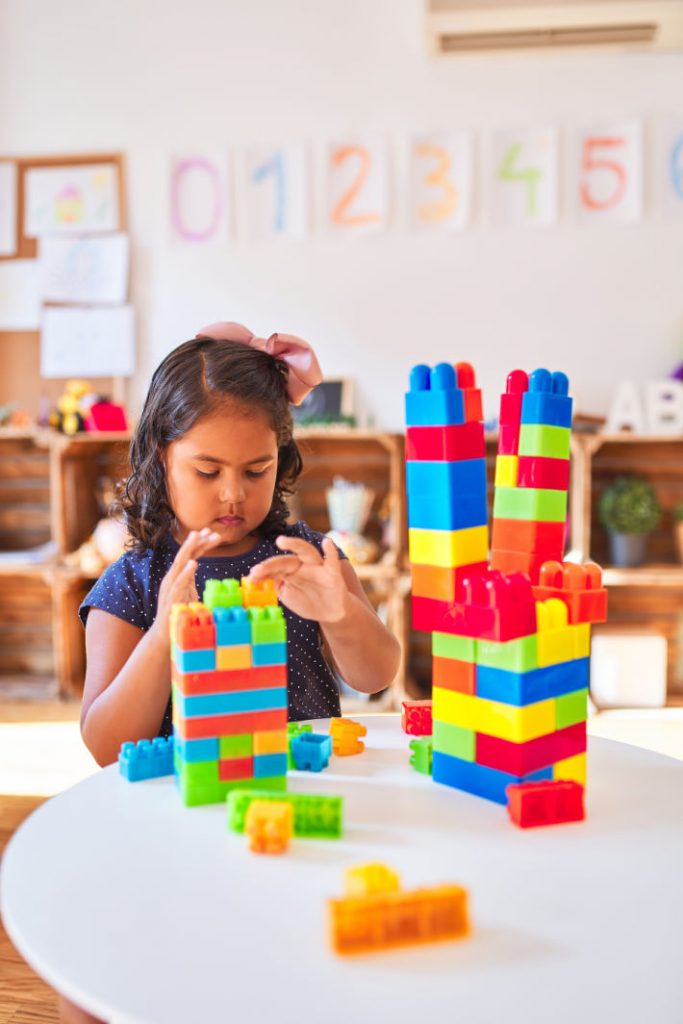
Play is still important in kindergarten and kids will have time to play outdoors and indoors, in structured and unstructured play.
Read more: Best Educational Games and Toys for Kindergarten
What is transitional kindergarten?
Transitional kindergarten started in California, where transitional kindergarten (TK) is universally available, and it’s spread to other states. TK is for kids who are in a middle-place between preschool and kindergarten. They’re too advanced for preschool but not yet ready for kindergarten. The idea is to give kids another year to get ready for kindergarten. So, kids may attend TK if they are either not old enough for kindergarten because of the state’s age requirement, or they are eligible but would benefit from another year of learning kindergarten-readiness skills.
TK has come about partly because kindergarten has become more and more academic. That means kids who aren’t ready for kindergarten might fall behind because they’re unprepared. But a year of TK, which has more stimulation than repeating a year of preschool but isn’t quite kindergarten, can be a good fit for some kids.
Read more: What Is Transitional Kindergarten? at U.S. News and World Report
What is redshirting?
Redshirting means delaying the start of kindergarten, keeping kids out of school for an additional year to let them mature. It’s gotten some attention because more upper-middle-class, college-educated parents are choosing to redshirt their kids, particularly those with summer birthdays. And during the COVID pandemic, parents held their kids out of school rather than have them participate in online learning.
Parents may redshirt their child because they think they need more time to mature socially, emotionally, or physically before starting school. Some parents may think that being more mature physically will give their child an edge in athletics in high school or provide some academic benefit.
But just because a family can redshirt their kid doesn’t mean they should. Holding students back may prevent teachers from seeing and addressing concerns as they arise, especially problems that show up early on. And kids need to learn in an environment with peers, so not attending school at all can be detrimental to kids.
Read more at Education Week.
How do I know if my child is ready for kindergarten?
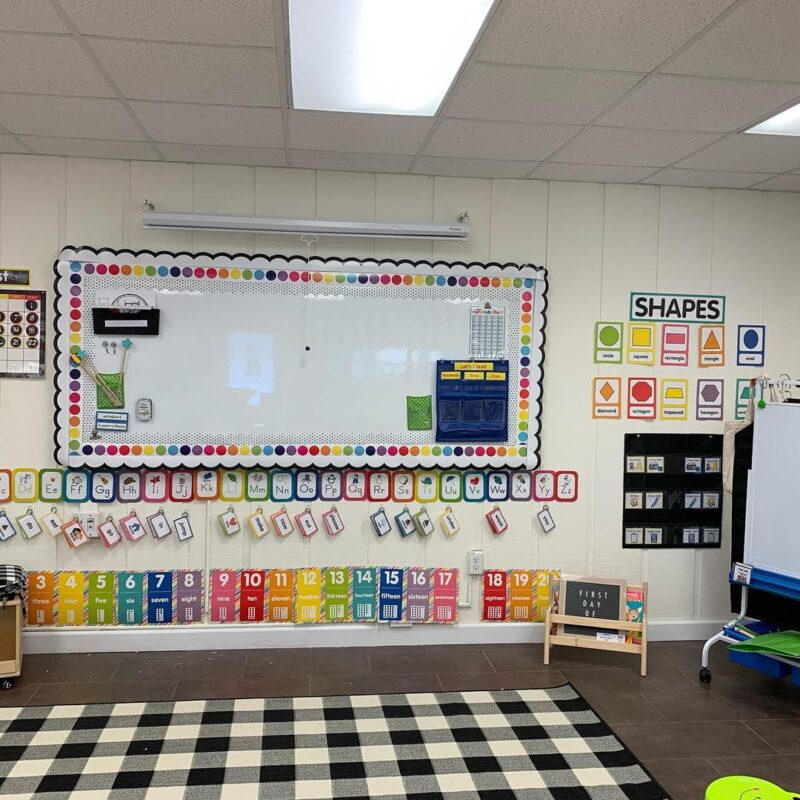
If your child has been to preschool, you may be confident that they’re ready for kindergarten. If it’s their first time in school, or they’re coming from a less structured day-care setting, you may not be so sure.
Here are some skills to look for:
Academic Readiness
- Can retell a simple story
- Can speak in complete sentences
- Can write or recognize the letters in their name
- Can recognize the title of a book
- Can count to 10
Social Skills
- Asks for help
- Follows one-step directions
- Recognizes authority
- Plays with peers
- Can share and play with a group
Physical Skills
- Holds a pencil, traces shapes, zips zipper
- Rides a bike with training wheels, hops, and skips
Independence
- Puts shoes on and takes them off
- Can zip and unzip their backpack
- Uses the toilet independently
- Can open and close their lunch box
Rest assured that even if your child is on the fence about starting kindergarten, the kindergarten teachers are ready for them! Kindergarten teachers have all the tricks and strategies to help kids transition into school and feel comfortable and successful in those first days.
Use our kindergarten checklist to see what skills they’ve mastered.
What if my child struggles in kindergarten?
Kindergarten is more academic than it used to be, so some kids are exhibiting concerns with academics. And academic concerns can spill over into behavioral and emotional issues, so it’s important to catch them early. If a child isn’t making the progress that teachers expect, they’ll be provided with intervention through the school’s Multi-Tiered System of Supports.
Read more: What Is MTSS?
Resources
- 30 Kindergarten Math Games
- 70 Kindergarten Books To Add to Your Collection
- Tips, Tricks, and Ideas for Teaching Kindergarten
- Kindergarten Science Activities
- SEL Activities for Kindergarten
- Kindergarten Art Projects
- The Ultimate List for Setting Up Your Kindergarten Classroom
- 50 Kindergarten Math Word Problems
- Kindergarten Games To Buy on Amazon
- Routines for getting started in kindergarten from Littles Love Learning
Also, check out Why Dolls Belong in Kindergarten.
For more articles like this, be sure to sign up for our newsletters to find out when they’re posted!
